第291章
Everybody was excited at the presence of the celebrated lawyer, Fetyukovitch.His talent was well known, and this was not the first time he had defended notorious criminal cases in the provinces.And if he defended them, such cases became celebrated and long remembered all over Russia.There were stories, too, about our prosecutor and about the President of the Court.It was said that Ippolit Kirillovitch was in a tremor at meeting Fetyukovitch, and that they had been enemies from the beginning of their careers in Petersburg, that though our sensitive prosecutor, who always considered that he had been aggrieved by someone in Petersburg because his talents had not been properly appreciated, was keenly excited over the Karamazov case, and was even dreaming of rebuilding his flagging fortunes by means of it, Fetyukovitch, they said, was his one anxiety.But these rumours were not quite just.Our prosecutor was not one of those men who lose heart in face of danger.On the contrary, his self-confidence increased with the increase of danger.It must be noted that our prosecutor was in general too hasty and morbidly impressionable.He would put his whole soul into some case and work at it as though his whole fate and his whole fortune depended on its result.This was the subject of some ridicule in the legal world, for just by this characteristic our prosecutor had gained a wider notoriety than could have been expected from his modest position.People laughed particularly at his passion for psychology.In my opinion, they were wrong, and our prosecutor was, I believe, a character of greater depth than was generally supposed.But with his delicate health he had failed to make his mark at the outset of his career and had never made up for it later.
As for the President of our Court, I can only say that he was a humane and cultured man, who had a practical knowledge of his work and progressive views.He was rather ambitious, but did not concern himself greatly about his future career.The great aim of his life was to be a man of advanced ideas.He was, too, a man of connections and property.He felt, as we learnt afterwards, rather strongly about the Karamazov case, but from a social, not from a personal standpoint.
He was interested in it as a social phenomenon, in its classification and its character as a product of our social conditions, as typical of the national character, and so on, and so on.His attitude to the personal aspect of the case, to its tragic significance and the persons involved in it, including the prisoner, was rather indifferent and abstract, as was perhaps fitting, indeed.
The court was packed and overflowing long before the judges made their appearance.Our court is the best hall in the town- spacious, lofty, and good for sound.On the right of the judges, who were on a raised platform, a table and two rows of chairs had been put ready for the jury.On the left was the place for the prisoner and the counsel for the defence.In the middle of the court, near the judges, was a table with the "material proofs." On it lay Fyodor Pavlovitch's white silk dressing-gown, stained with blood; the fatal brass pestle with which the supposed murder had been committed; Mitya's shirt, with a blood-stained sleeve; his coat, stained with blood in patches over the pocket in which he had put his handkerchief; the handkerchief itself, stiff with blood and by now quite yellow; the pistol loaded by Mitya at Perhotin's with a view to suicide, and taken from him on the sly at Mokroe by Trifon Borrissovitch; the envelope in which the three thousand roubles had been put ready for Grushenka, the narrow pink ribbon with which it had been tied, and many other articles Idon't remember.In the body of the hall, at some distance, came the seats for the public.But in front of the balustrade a few chairs had been placed for witnesses who remained in the court after giving their evidence.
At ten o'clock the three judges arrived- the President, one honorary justice of the peace, and one other.The prosecutor, of course, entered immediately after.The President was a short, stout, thick-set man of fifty, with a dyspeptic complexion, dark hair turning grey and cut short, and a red ribbon, of what Order I don't remember.The prosecutor struck me and the others, too, as looking particularly pale, almost green.His face seemed to have grown suddenly thinner, perhaps in a single night, for I had seen him looking as usual only two days before.The President began with asking the court whether all the jury were present.
But I see I can't go on like this, partly because some things Idid not hear, others I did not notice, and others I have forgotten, but most of all because, as I have said before, I have literally no time or space to mention everything that was said and done.I only know that neither side objected to very many of the jurymen.Iremember the twelve jurymen- four were petty officials of the town, two were merchants, and six peasants and artisans of the town.Iremember, long before the trial, questions were continually asked with some surprise, especially by ladies: "Can such a delicate, complex and psychological case be submitted for decision to petty officials and even peasants?" and "What can an official, still more a peasant, understand in such an affair?" All the four officials in the jury were, in fact, men of no consequence and of low rank.Except one who was rather younger, they were grey-headed men, little known in society, who had vegetated on a pitiful salary, and who probably had elderly, unpresentable wives and crowds of children, perhaps even without shoes and stockings.At most, they spent their leisure over cards and, of course, had never read a single book.The two merchants looked respectable, but were strangely silent and stolid.